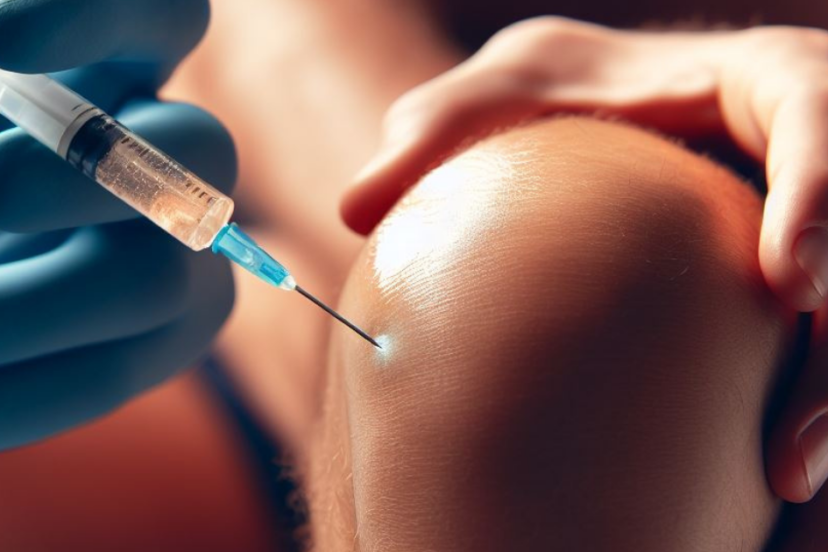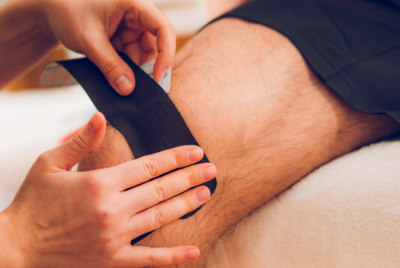Knee Gel Injections: A Promising Solution for Joint Pain Relief
Living with chronic knee pain can significantly impact one’s quality of life and restrict daily activities. Fortunately, advancements in medical technology have led to various treatment options for knee pain, and one such option gaining popularity is knee gel injections. In this article, we will explore knee gel injections as a potential solution for joint pain relief, discussing their benefits, the procedure, and important considerations.
Understanding Knee Gel Injections
Knee gel injections, also known as viscosupplementation, involve the injection of a gel-like substance into the knee joint to provide lubrication and cushioning. The gel is typically made from hyaluronic acid, a natural component found in healthy joints. This procedure aims to supplement the reduced natural lubrication in the knee joint, which is often the cause of pain and discomfort.
How do knee gel injections work?

When the knee joint experiences osteoarthritis or degenerative changes, the natural synovial fluid becomes thinner and loses its ability to lubricate the joint effectively. Knee gel injections work by replenishing the joint with a viscosupplement, which mimics the properties of the synovial fluid. The injected gel acts as a lubricant and shock absorber, reducing friction and providing cushioning between the bones, thereby relieving pain and improving joint function.
The Benefits of Knee Gel Injections
They offer several benefits for individuals suffering from knee pain:
Effective pain relief: The viscosupplement gel helps reduce pain and discomfort in the knee joint, providing relief from chronic pain associated with osteoarthritis.
Improved joint function and mobility: By restoring lubrication and cushioning, knee gel injections can improve joint function, making movements smoother and more comfortable.
Minimal side effects: Compared to other treatment options, knee gel injections have minimal side effects and a low risk of complications, making them a safe choice for many individuals.
The Procedure: What to Expect
Before opting for treatment, it’s essential to understand the procedure and what to expect during and after the treatment.
Preparing for the injection: Your healthcare professional will evaluate your medical history and conduct a thorough examination of your knee joint to determine if you are a suitable candidate for knee gel injections. They will explain the procedure, address any concerns or questions you may have, and provide pre-injection instructions.
The injection process: The injection is typically performed in an outpatient setting. The healthcare professional will clean the injection site, apply a local anesthetic if necessary, and then administer the gel injection directly into the knee joint using a thin needle. The process is relatively quick and usually completed within a few minutes.
Post-injection care and recovery: After the injection, you may experience some discomfort or swelling at the injection site. Applying ice packs and taking over-the-counter pain relievers, as recommended by your healthcare professional, can help alleviate these symptoms. It’s essential to follow any post-injection care instructions provided by your healthcare professional for optimal recovery.
Are Knee Gel Injections Right for You?
While they can be an effective treatment option for many individuals, they may not be suitable for everyone. Factors such as the severity of your knee condition, previous treatment history, and overall health should be considered before deciding on this treatment. It’s important to consult with a healthcare professional who can evaluate your specific case and provide personalized recommendations.
Alternatives to Knee Gel Injections

They are just one of several treatment options available for knee pain relief. Depending on the severity and underlying cause of your knee pain, alternative treatments may include:
Physical therapy and exercise: Strengthening the muscles around the knee joint and improving flexibility through targeted exercises can help alleviate knee pain and improve joint stability.
Medications for pain management: Over-the-counter pain relievers, nonsteroidal anti-inflammatory drugs (NSAIDs), and corticosteroid injections are some medication options that can provide temporary relief from knee pain.
Surgical options: In severe cases where conservative treatments have been unsuccessful, surgical interventions such as arthroscopy, partial knee replacement, or total knee replacement may be considered.
The Importance of Consulting a Healthcare Professional
If you are experiencing persistent knee pain or considering knee gel injections, it is crucial to consult with a qualified healthcare professional. They can assess your specific condition, discuss the potential risks and benefits of the treatment, and provide guidance on the most suitable treatment options for your case.
Conclusion
Knee gel injections, or viscosupplementation, can offer significant relief for individuals suffering from knee pain due to osteoarthritis or other degenerative conditions. By providing lubrication and cushioning to the knee joint, these injections can reduce pain, improve joint function, and enhance overall quality of life. However, it’s essential to consult with a healthcare professional to determine what treatment is required.
FAQs
1. What are Knee Gel Injections?
They involve the injection of a thick, lubricating gel called hyaluronic acid into the knee joint. This gel helps to reduce pain and improve joint function in individuals with knee osteoarthritis.
2. How Do Knee Gel Injections Work?
Hyaluronic acid acts as a shock absorber and lubricant in the knee joint, providing relief by reducing friction between bones. It also has anti-inflammatory properties.
3. Are Knee Gel Injections Painful?
The procedure is generally well-tolerated, with minimal discomfort. Your doctor may use a local anesthetic to numb the area before injection.
4. How Long Do the Effects Last?
The duration of relief can vary from person to person but typically lasts several months. Some individuals may require periodic injections for ongoing relief.
5. Who Is a Suitable Candidate for treatment?
Candidates are usually individuals with knee osteoarthritis who have not responded well to other treatments like pain medications or physical therapy.
6. Are There Any Side Effects?
Common side effects include temporary pain or swelling at the injection site. Serious side effects are rare but can include infection or an allergic reaction.
7. What Is the Recovery Time After the Injection?
Most people can resume their regular activities shortly after the procedure. Your doctor will provide guidance based on your specific case.
8. Can Knee Gel Injections Delay the Need for Surgery?
In some cases, they can provide long-term relief, potentially delaying the need for surgery like knee replacement.
9. Are These Injections Covered by Insurance?
Coverage varies by insurance provider and policy. Check with your insurer to see if they are covered.
10. How Can I Prepare for the Injection?
Your doctor will provide specific instructions, but generally, you should inform them about any allergies or medications you are taking.
Remember that knee gel injections are just one treatment option for knee osteoarthritis. It’s essential to discuss your individual situation with a healthcare professional to determine the best course of action for your knee pain management.
*We may earn a commission from purchases made through our links, at no cost to you. This does not affect our product recommendations. Please see our disclosure to learn more.
![Urban Health Hive]](https://urbanhealthhive.com/wp-content/uploads/2023/05/cropped-cropped-Health_Logo.png)



